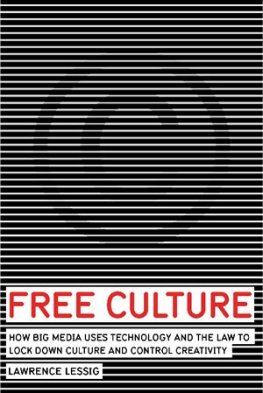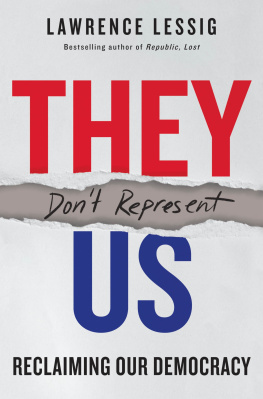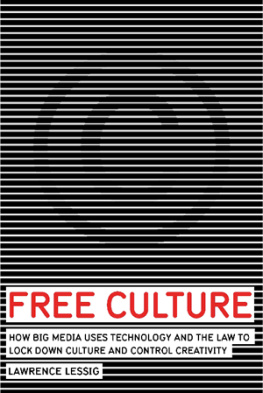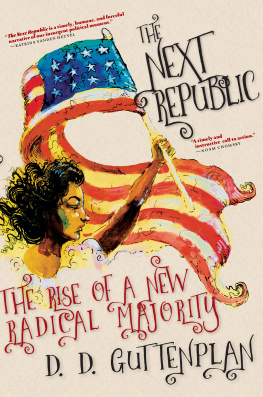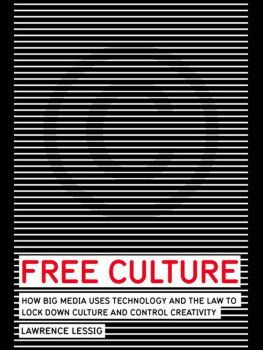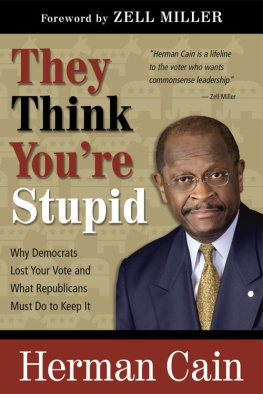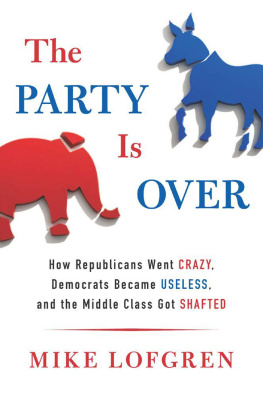Lawrence Lessig - One Way Forward: The Outsiders Guide to Fixing the Republic
Here you can read online Lawrence Lessig - One Way Forward: The Outsiders Guide to Fixing the Republic full text of the book (entire story) in english for free. Download pdf and epub, get meaning, cover and reviews about this ebook. year: 2012, publisher: Byliner Inc., genre: Politics. Description of the work, (preface) as well as reviews are available. Best literature library LitArk.com created for fans of good reading and offers a wide selection of genres:
Romance novel
Science fiction
Adventure
Detective
Science
History
Home and family
Prose
Art
Politics
Computer
Non-fiction
Religion
Business
Children
Humor
Choose a favorite category and find really read worthwhile books. Enjoy immersion in the world of imagination, feel the emotions of the characters or learn something new for yourself, make an fascinating discovery.
- Book:One Way Forward: The Outsiders Guide to Fixing the Republic
- Author:
- Publisher:Byliner Inc.
- Genre:
- Year:2012
- Rating:4 / 5
- Favourites:Add to favourites
- Your mark:
One Way Forward: The Outsiders Guide to Fixing the Republic: summary, description and annotation
We offer to read an annotation, description, summary or preface (depends on what the author of the book "One Way Forward: The Outsiders Guide to Fixing the Republic" wrote himself). If you haven't found the necessary information about the book — write in the comments, we will try to find it.
But all of this can changewe have the power. Lawrence Lessig, the renowned Harvard Law School professor, political activist, and author of the bestselling Republic, Lost, presents a clear-eyed, bipartisan manifesto for revolution just when we need it the most. One Way Forward is a rousing, eloquent, and ultimately optimistic call to action for Americans of all political persuasions. Notable in these viciously partisan times, Lessig pitches his address equally to Occupy Wall Streeters, Tea Party Patriots, independents, anarchists, and baffled citizens of the American middle. Despite our serious political differences, he argues, we canand mustchange the system for the better.
At the core of our government, Lessig says, is a legal corruption. In other words: money. The job of politics has been left to a tiny slice of Americans who dominate campaign finance and exert a disproportionate influence on lawgivers as a result. This, he writes, is a dynamic that would be obvious to Tony Soprano or Michael Corleone but that is sometimes obscure to political scientists: a protection racket that flourishes while our Republic burns.
We dont need to destroy wealth, Lessig declares. We need to destroy the ability of wealth to corrupt our politics.
With the common-sense idealism of his hero, Henry David Thoreau, Lessig shows how Americans can take back their country, and he provides a concrete and surprisingly practical set of instructions for doing it.
In a season where Americans are poised between the hope for real change and the fear that, once again, they wont get it, One Way Forward charts a course to a thrillingly new American future in which every citizen has a voice that matters, no matter how fat his or her wallet.
. . .
Lawrence Lessig is the director of the Edmond J. Safra Center for Ethics at Harvard University and the Roy L. Furman Professor of Law and Leadership at Harvard Law School. His most recent book is Republic, Lost, an attack on the destructive influence of special-interest money on American politics. He is also the author of Code and other Laws of Cyberspace, The Future of Ideas, Free Culture, Code: Version 2.0, and Remix: Making Art and Culture Thrive in the Hybrid Economy. He is a founding board member of Creative Commons and serves on the board of Maplight.
Lawrence Lessig: author's other books
Who wrote One Way Forward: The Outsiders Guide to Fixing the Republic? Find out the surname, the name of the author of the book and a list of all author's works by series.



